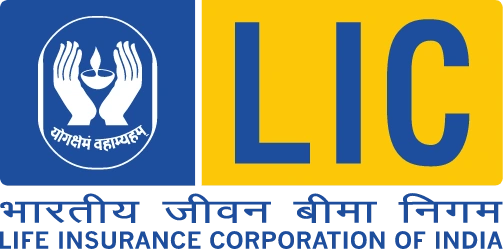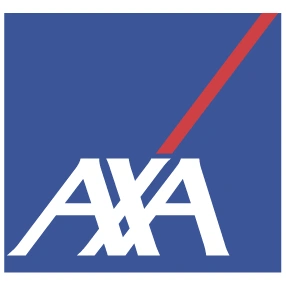Explore a range of mortgage options designed to fit your financial situation.
Home Refinance
Cash out Refinance
Reverse Mortgage
Got Your Mortgage in Mind? Jump In and Get Started Now!



Home Refinance
Cash out Refinance
Reverse Mortgage
Bringing You Unmatched Value with Leading Insurance Partnerships








Your confidence in us is our top priority.
I saved $300 on my car insurance in less than 10 minutes with GetInsure!”
– Sarah T., Texas

GetInsure made finding the perfect policy simple and stress-free. Highly satisfied!
– Mark D., California

Quick, easy, and reliable – the best insurance experience I’ve ever had!
– Linda K., Chicago

I was overwhelmed by all the options for life insurance, but GetInsure guided me every step of the way. Now I have peace of mind knowing my family is protected.
– David M., San Diego

Discover Top Articles & Resources Tailored for Your Needs

The choice of the Personal loan lender is significant to make because such a choice will either make or ruin

Personal loans exist in today's American financial landscape in a way by which most get to manage their expenses, get

Looking ahead in the future, purchasing life insurance is a good investment that will grant you peace of mind and

Auto insurance is a necessary expense for anyone who owns or drives a car. It's important to have the right

Auto insurance is one of those necessary expenses that we all have to deal with. We need it to protect
A mortgage is a type of secured loan specifically designed to help individuals and families purchase a home or other real estate properties. It is among the most significant financial decisions most people make, offering an opportunity to acquire property without needing the entire purchase amount upfront. Mortgages are tailored to suit different types of buyers, whether first-time homeowners, investors, or those looking to upgrade or downsize their living arrangements.
At its core, a mortgage agreement involves borrowing money from a lender, such as a bank or credit union, to pay for a property. The borrower agrees to repay the loan over a specified term, typically ranging from 10 to 30 years, in fixed or adjustable monthly payments that include principal and interest. In most cases, the property being purchased serves as collateral, meaning the lender has the right to seize it if the borrower defaults on the loan.
Mortgages are not only tools for buying homes but also instruments for leveraging the equity in existing properties. Homeowners can use mortgages for refinancing, accessing funds for significant life events, or consolidating debt. Different types of mortgages, such as fixed-rate, adjustable-rate, and government-backed loans, cater to the varying needs of buyers, depending on their financial goals, creditworthiness, and budget.
For first-time buyers, mortgages provide a structured path toward achieving homeownership. For seasoned investors, they are a mechanism for expanding property portfolios. No matter the purpose, understanding the basics of mortgages is essential for making informed financial decisions.

Lenders assess several factors to determine mortgage eligibility:
Mortgages provide flexibility with different structures, including fixed-rate loans for predictable payments, adjustable-rate loans for initial savings, and government-backed loans like FHA, VA, and USDA loans catering to specific buyer demographics.

Refinancing a mortgage involves replacing the existing loan with a new one, typically with better terms. Key benefits include:
This option enables borrowers to refinance for more than their current mortgage balance, accessing the difference in cash. Advantages include:
A reverse mortgage is designed for seniors (typically aged 62 or older), allowing them to convert a portion of their home equity into cash. Unique features include:
However, reverse mortgages have risks, such as reducing inheritance value and requiring the borrower to maintain the property and stay current on taxes and insurance.
Each mortgage type serves specific financial goals. Home refinancing helps lower costs or access equity, cash-out refinance provides liquidity for major expenses, and reverse mortgages cater to seniors’ financial needs. Understanding these options empowers borrowers to make informed decisions tailored to their circumstances.

GetInsure is rated 4 out of 5 stars based on 500 reviews!

 What is a mortgage?
What is a mortgage? A mortgage is a loan used to purchase real estate. The property serves as collateral, and borrowers repay the loan in monthly installments, including principal and interest, over an agreed term.
 How do I qualify for a mortgage?
How do I qualify for a mortgage? Qualification depends on factors like credit score, income, debt-to-income ratio, and down payment. Lenders may also require employment stability and property appraisal.
 What is refinancing a mortgage?
What is refinancing a mortgage? Refinancing replaces your current mortgage with a new one, often to lower interest rates, reduce monthly payments, or access equity through cash-out refinancing.
 How does a fixed-rate mortgage differ from an adjustable-rate mortgage?
How does a fixed-rate mortgage differ from an adjustable-rate mortgage? A fixed-rate mortgage has a consistent interest rate for the loan term, while an adjustable-rate mortgage (ARM) starts with a lower fixed rate that adjusts periodically based on market conditions.
 Can I refinance my mortgage with bad credit?
Can I refinance my mortgage with bad credit? Yes, but it may be challenging. Lenders may require higher interest rates, larger equity, or alternative programs designed for borrowers with lower credit scores.
 What are closing costs in a mortgage?
What are closing costs in a mortgage? Closing costs are fees paid at the loan closing, including appraisal fees, attorney fees, title insurance, and loan origination fees. They typically range from 2% to 5% of the loan amount.
 What is a cash-out refinance?
What is a cash-out refinance? A cash-out refinance replaces your current mortgage with a larger loan, allowing you to access the difference as cash for expenses like renovations or debt consolidation.
 Are there any tax benefits to having a mortgage?
Are there any tax benefits to having a mortgage? Interest paid on your mortgage may be tax-deductible, particularly for primary residences. Consult a tax advisor to understand your eligibility.
 How long does it take to close on a mortgage?
How long does it take to close on a mortgage? The mortgage closing process typically takes 30 to 45 days, depending on the lender, loan type, and any delays in documentation or appraisal.
 What happens if I miss a mortgage payment?
What happens if I miss a mortgage payment? Missing a payment can result in late fees, impact your credit score, and potentially lead to foreclosure. Contact your lender immediately to discuss options if you face financial hardship.
Discover Top Articles & Resources Tailored for Your Needs

The choice of the Personal loan lender is significant to make because such a choice will either make or ruin

Personal loans exist in today's American financial landscape in a way by which most get to manage their expenses, get

Looking ahead in the future, purchasing life insurance is a good investment that will grant you peace of mind and

Auto insurance is a necessary expense for anyone who owns or drives a car. It's important to have the right

Auto insurance is one of those necessary expenses that we all have to deal with. We need it to protect
Find, Compare, and Secure Your Ideal Mortgage Effortlessly.
© Getinsure. All Rights Reserved.
Terms of Use
Privacy Policy
Cookie Preferences
Unsubscribe
Cookie Preferences
Do not sell my information / CCPA

© Getinsure. All Rights Reserved.